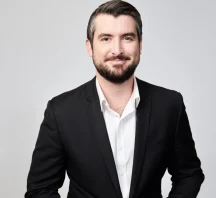Global economy on a ‘razor’s edge’: World Bank



The World Bank has slashed its global growth forecasts for 2023 by 1.3% amid rising interest rates, inflationary pressures and ongoing geopolitical issues.
In its latest Global Economic Prospects Report, released yesterday (11 January), the development lender said it expected global growth to fall to 1.7% in 2023—the third weakest pace of growth in nearly three decades, overshadowed only by the global recessions caused by the pandemic and the Global Financial Crisis.
In its last Global Economic Prospects Report in June 2022, the World Bank had predicted global growth of 3% for 2023.
The new forecast of 1.7% was 1.3 percentage points below the previous forecasts, reflecting synchronous policy tightening aimed at containing very high inflation, worsening financial conditions, and continued disruptions from the Russian Federation’s invasion of Ukraine.
“The United States, the euro area, and China are all undergoing a period of pronounced weakness, and the resulting spillovers are exacerbating other headwinds faced by emerging market and developing economies (EMDEs),” the report said.
“The combination of slow growth, tightening financial conditions, and heavy indebtedness is likely to weaken investment and trigger corporate defaults. Further negative shocks—such as higher inflation, even tighter policy, financial stress, deeper weakness in major economies, or rising geopolitical tensions—could push the global economy into recession.”
The World Bank has warned that in the near term, urgent global efforts were needed to mitigate the risks of global recession and debt distress in EMDEs.
“Given limited policy space, it is critical that national policy makers ensure that any fiscal support is focused on vulnerable groups, that inflation expectations remain well anchored, and that financial systems continue to be resilient,” it said.
World Bank director of the Prospects Group, which conducted the macroeconomic analysis, Ayhan Kose, said the global economy was on a ‘razor’s edge’.
“Even a small shock can trigger an outright recession,” he said. “One of these risks is associated with higher interest rates because inflation rates remaining persistently high. We are expecting inflation moderating this year relative to last year, but core inflation might remain elevated, and central banks have to continue increasing interest rates or they keep interest rates at a high level.”
The World Bank’s latest report modelled a scenario where global interest rates continued to rise from their current level of 5%.
If global interest rates were to rise to 6%, global growth forecasts would fall from 1.7% to 0.6%.
“That means, of course, per capita income contracting by about 0.3%, and that is the technical definition of a global recession,” Kose said.
“And policymakers need to be proactive in an environment with multiple risks. The risk of policy mistakes is also higher.”
Recommended for you
Evidentia’s chief investment strategist Nathan Lim has announced his retirement after a 30-year career.
GQG Partners has marked its fifth consecutive month of outflows as its AI concerns lead to fund underperformance but overall funds under management increased to US$166.1 billion.
Apostle Funds Management is actively pursuing further partnerships in Asia and Europe but finding a suitable manager is a “needle in a haystack”.
Managed account provider Trellia Wealth Partners, formed from the merger between Betashares and InvestSense, has appointed its first managing partner.











